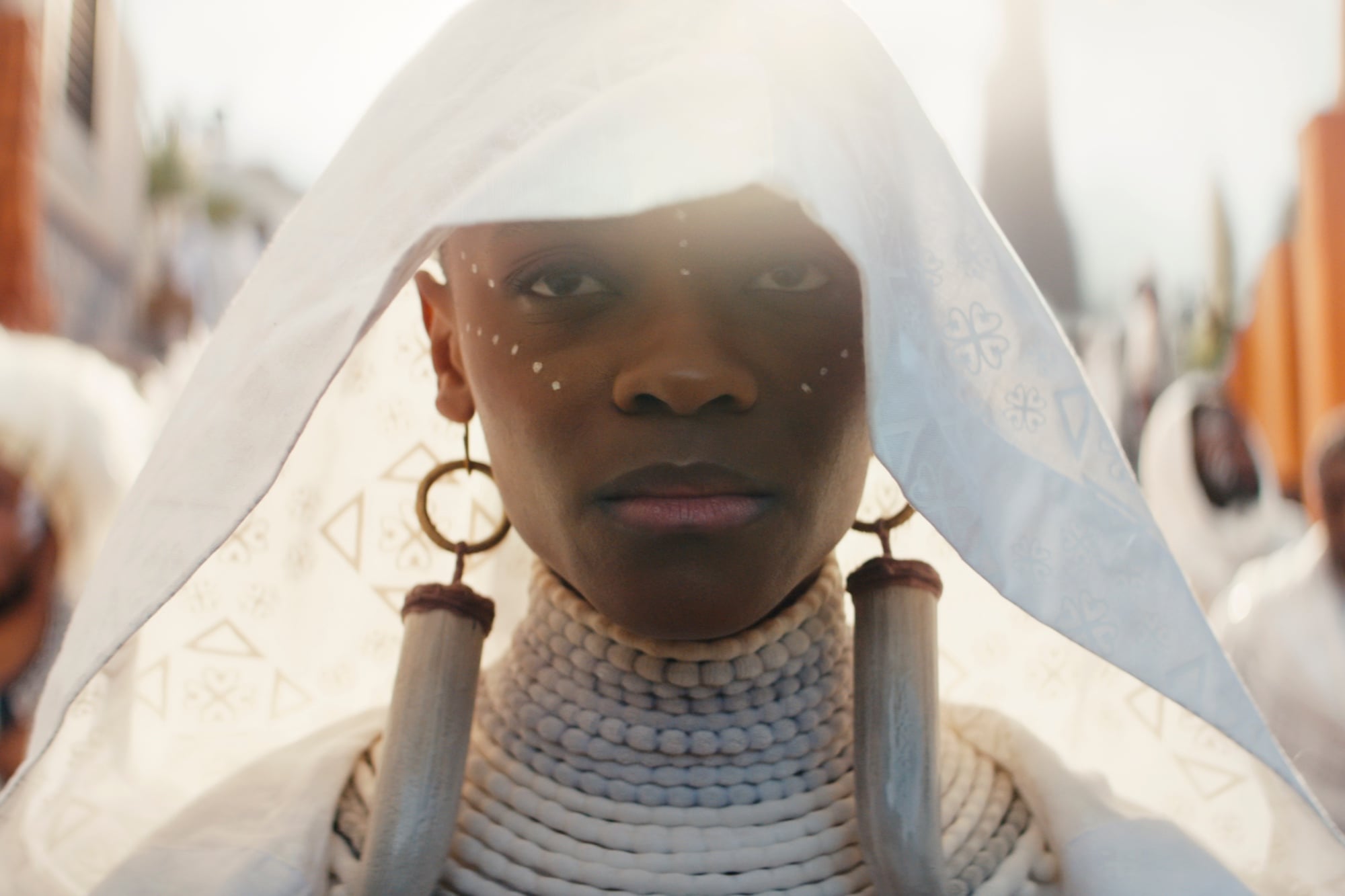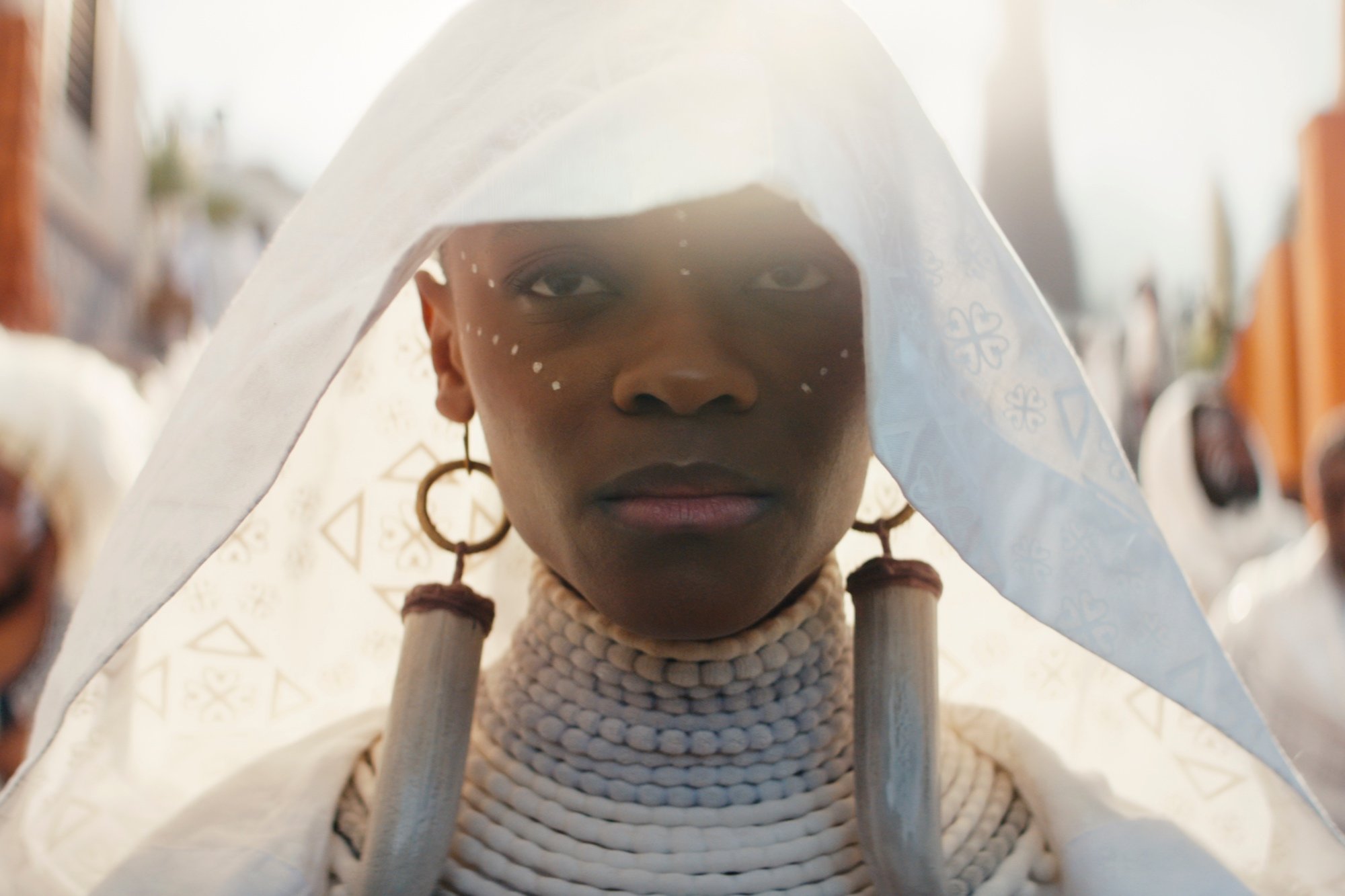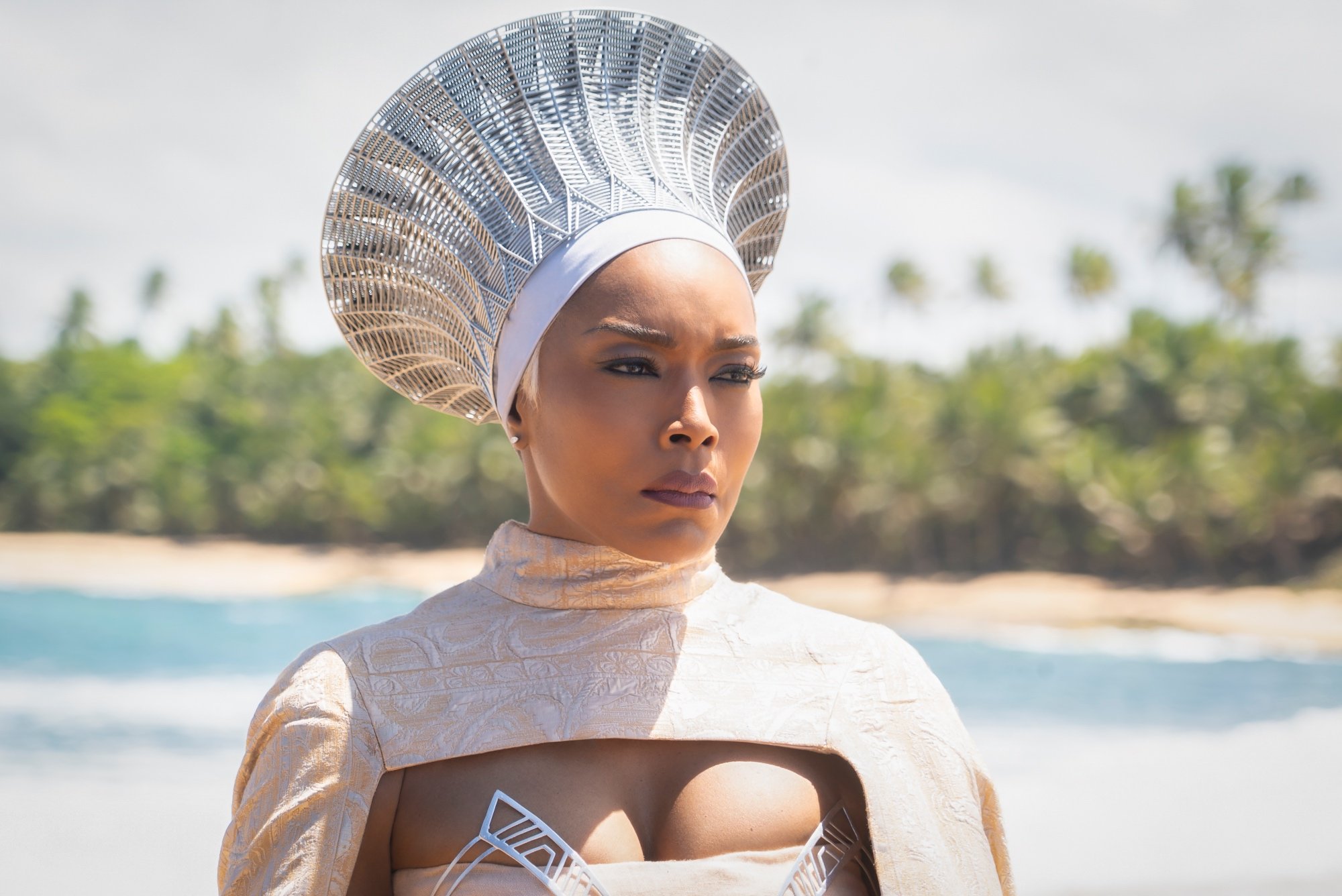
‘Black Panther: Wakanda Forever’ Movie Review: The MCU Goes Diplomatic in Cathartic Chadwick Boseman Send-Off
Black Panther: Wakanda Forever writer/director Ryan Coogler had an abundance of noise to push through after the Marvel Cinematic Universe (MCU) Phase 4 took a big swing into the multiverse. Additionally, T’Challa actor Chadwick Boseman‘s tragic death in 2020 resulted in significant story changes, but Coogler was determined to craft a respectable sequel that honored the star’s impact. Black Panther: Wakanda Forever takes a step toward intimate storytelling, once again proving why his voice in the MCU is an important one.

‘Black Panther: Wakanda Forever’ faces grief with the loss of King T’Challa

King T’Challa was the Black Panther, but he was the protector of Wakanda in more ways than one. His sudden death puts the nation in a state of mourning, as they try to piece themselves back together. All eyes are on his sister, Shuri (Letitia Wright), and their mother, Ramonda (Angela Bassett), as they face foreign pressures surrounding their precious supply of vibranium.
Wakanda crosses paths with Namor (Tenoch Huerta), who rules over an underwater kingdom called Talokan. However, they prefer to stay invisible to the world, but they can’t remain that way forever. Wakanda and Talokan will have to decide if the other is an ally or foe, as other world powers eye their resources for their own advantage.
Wakanda and Talokan encounter conflict
There is no replacing T’Challa, and Coogler is aware of this. Black Panther: Wakanda Forever acknowledges the character’s absence, as he meets his demise to an undisclosed illness while Shuri fights to create a cure. As a result, a deep, visceral grief spreads through Wakanda. T’Challa remains a symbol of strength and hope throughout the country, leaving a void that no one else could fill. Shuri and Ramonda wrestle with their loss, as one finds solace in superstition, while the other comprehends their trauma in the form of logic.
However, they don’t have much time to reconcile with the death of a family member. Other countries realize that they lack a protector in the form of the Black Panther and see an opportunity to pursue their precious resource of vibranium. The world claims it to be a matter of trust or the lack thereof, but it all has to do with power. Wakanda remains a superpower, although other world players are looking to make a serious move to end up on top.
Much of Black Panther: Wakanda Forever is about political relationships and diplomacy. Each character brushed shoulders with sacrifice, harboring their own pain that they carry with them. As a result, they have their own motivations, and depending on the perspective one takes on, multiple characters can become the protagonist or the antagonist. Some fellow Wakandans continue to view Shuri as a child, but her pain and search for vengeance force her to mature in a hurry. She doesn’t see that it could also potentially lead to her downfall.
‘Black Panther: Wakanda Forever’ is a worthy sequel well worth the wait

Black Panther: Wakanda Forever takes a step back from the MCU setup, where every movie consciously seeks to fit into the ongoing machine that is the franchise. Coogler keeps the major Easter egg reveals to a minimum, allowing the film to stand on its own two feet. Namor earns a weighty introduction that gives the audience a sense of awareness of how Wakanda fits in with the rest of the world. Coogler and Joe Robert Cole’s screenplay is concerned with exploring the nation, as it faces some of its toughest challenges in the aftermath of losing its symbol of hope and strength.
Performances are solid all around. Wright is charismatic, carrying a substantial amount of the film’s dramatic weight. Lupita Nyong’o’s talents feel a bit underutilized as Nakia, while Huerta’s Namor is sufficiently menacing and captivating. But, it’s Bassett who proves to be the real scene-stealer as Ramonda, commanding attention at every turn. She has a few splashy moments that demonstrate her range, but she also consistently sells the quiet moments of sorrow.
Ruth E. Carter’s gorgeous costume design truly breathes life into this world, fully immersing the viewer in Wakandan and Talokan culture. From war outfits to ceremonial garb, Black Panther: Wakanda Forever is constantly a feast for the eyes. Additionally, the music soundtrack follows in its predecessor’s footsteps, incorporating stellar tracks to amplify the film’s messaging.
Similar to other MCU franchise installments, Black Panther: Wakanda Forever is a tad overstuffed, especially in its second half that doesn’t entirely allow its narrative on grief to breathe. The most personal attributes of the narrative devolve into an overlong third-act fight sequence blaring with special FX. The Dora Milaje’s close combat sequences prove most thrilling, but more specifically in smaller bursts without too many bodies crowding the frame to make room for stuntwork.
There’s no denying that Coogler and co. crafted an MCU installment that pushes Wakanda’s narrative forward in a way that feels respectful to Boseman. He remains an impactful presence every step of the way, continuing to influence every decision that Wakandan leadership makes. It’s a cathartic blockbuster experience without ever feeling exploitative. It doesn’t surpass its predecessor, but it’s the much-needed kick the MCU needed. Black Panther: Wakanda Forever is an emotionally gratifying journey with diplomatic stakes that feel vigorous, despite an overcrowded narrative.
Black Panther: Wakanda Forever lands in theaters on Nov. 11.


